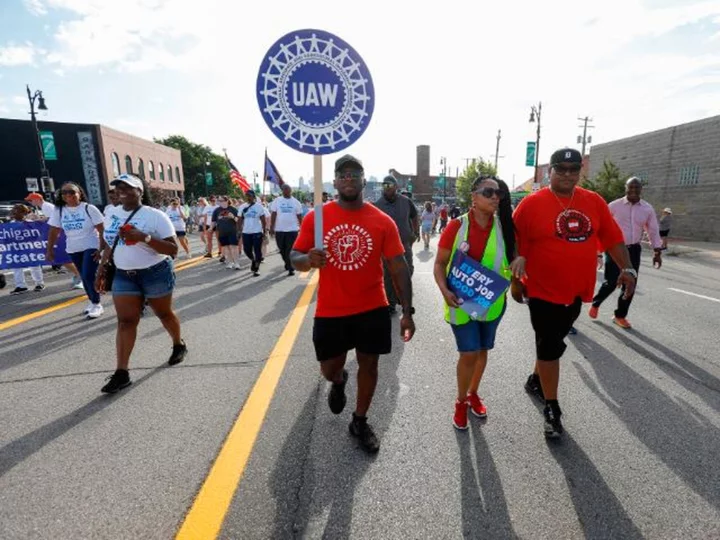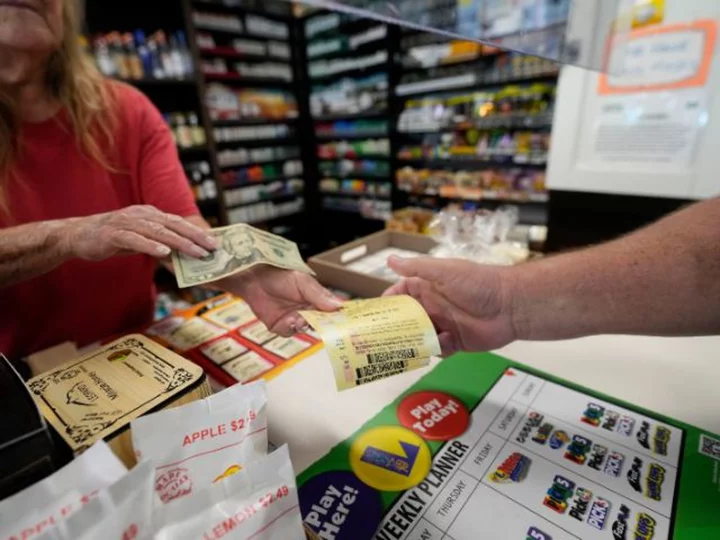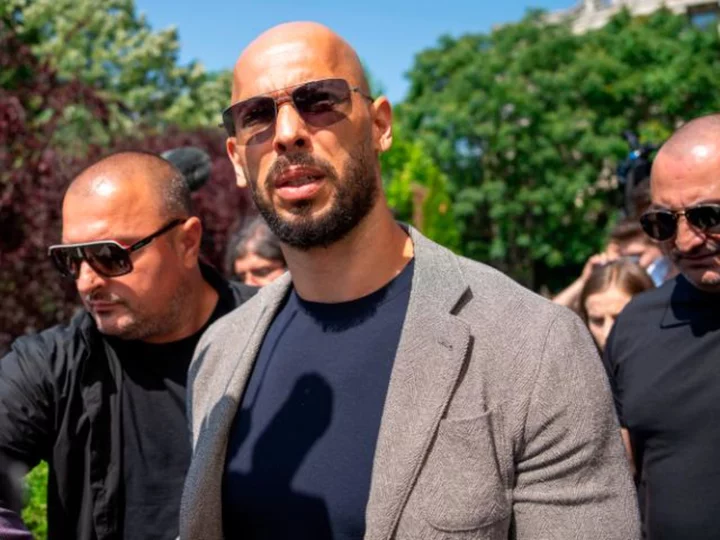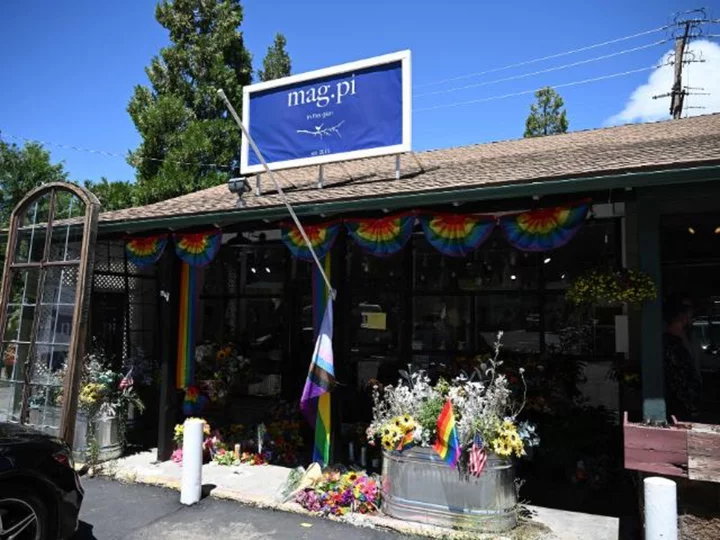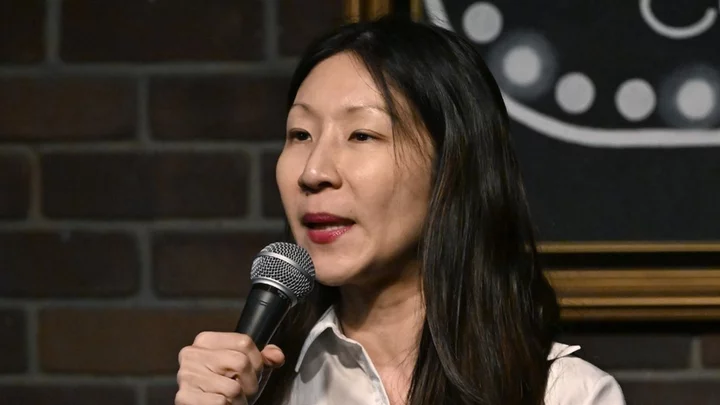President Joe Biden was dealt an economic and political blow Friday as the United Auto Workers went on strike after the union and major American automakers failed to reach a new contract, a development the White House worked to avoid and now places the president in a bind.
On one side, Biden faces pressure to support workers he has championed for decades and whose support he'll need to win reelection. On the other is the potentially destabilizing risk of an auto manufacturing shutdown, threatening higher prices on vehicles and a blow to the economy just as Biden ramps up his "Bidenomics" sales pitch.
Until now, the White House has remained on the sidelines of the talks, declining to take a position in the contentious negotiations. It remained to be seen whether the start of a strike would push the president toward more vocal support for one side, or unlock steps by the administration to contain the economic fallout.
For Biden, who has labeled himself the most "pro-union president in history," the strike also lays bare a tension between two of his chief objectives: Improving wages and conditions for American manufacturing workers and leading a transition to clean energy.
The president has insisted repeatedly those can be parallel goals, not competing ones. But the launch of the strike makes clear that reconciling those intentions will still be a complex challenge. Negotiations between the autoworkers and the Big Three car companies -- General Motors, Ford and Jeep-maker Stellantis -- had been complicated by the shift to electric vehicles.
In the lead-up to the strike, Biden and White House officials had been carefully monitoring developments in the negotiations, though were not directly involved. The union said targeted strikes would commence at an undisclosed number of facilities if its current contract expired at 11:59 p.m. on Thursday. Among other demands, the union had called for a 36% pay increase over four years.
"He's encouraged the parties to stay at the table and to work 24-and-7 to get a win-win agreement that keeps UAW workers at the heart of our auto future and ensures UAW jobs are good middle-class jobs," the president's top economic adviser, Jared Bernstein said Wednesday.
Biden dispatched senior adviser Gene Sperling as the go-between for the administration in the talks. Among the tasks for the White House was developing a relationship with the combative UAW President Shawn Fain, who was elected in March after challenging the union's existing leadership faction.
Fain visited the White House in July to discuss his negotiating strategy with Biden administration officials, including National Economic Council Director Lael Brainard, counselor to the president Steve Ricchetti, deputy chief of staff Jennifer O'Malley Dillon, and Sperling.
After the Roosevelt Room meeting, Biden requested a meeting with Fain, who had been sworn in for a matter of months and was only beginning to build relationships with potential political allies, remaining something of an "unknown quantity" going into battle.
"That's been one of the things that's been uniquely challenging about this," one source told CNN, acknowledging there's not a clear enough read on Fain's leadership and negotiating style to discern what is bluster and what is strategy.
Biden spoke again with Fain on Labor Day, according to a White House official, and also spoke with the leaders of the Big Three automakers last week ahead of his trip to Asia. The Labor Day call came after CNN asked the president about the strike earlier in the day ahead of planned remarks to union workers in Philadelphia.
"No, I'm not worried about a strike until it happens," Biden said when asked if he was worried about the possibility. "I don't think it's going to happen."
Asked about those comments afterward, Fain told CNN affiliate WXYZ that he was "shocked" by Biden's reaction.
"I appreciate the president's optimism and I also hope that the Big Three will come to their senses and start bargaining in good faith, but we are ready to do what is necessary come September 15 if they don't," Fain later told CNN.
The official described the Labor Day call between Biden and Fain as "productive," and said Biden had encouraged the auto executives "to provide more forward-leaning offers and stay at the table."
Biden was frequently briefed on the ongoing talks during his trip to India and Vietnam last week. Yet aside from voicing support for productive negotiations, he is limited in his ability to avoid a work stoppage.
The president and Fain spoke again on Thursday night ahead of the midnight deadline.
The president lacks the legal authority he would have if a freight railroad or airline was threatening to strike. In those cases, a different labor law gives the president the authority to order both sides to continue on the job. Biden exercised that law last year to prevent a strike of freight rail workers, angering some of his allies in the labor movement.
The president, who calls himself a "car guy," has longstanding ties to the auto industry and credits the UAW with helping him win elections.
Despite Biden's reputation as a pro-union president, however, his current influence remains fairly limited with the UAW, which has withheld its endorsement of his reelection bid. The union has been critical of the administration's push to move away from gas-powered cars to electric vehicles, which the autoworkers fear could mean fewer jobs. The climate incentives in Biden's massive Inflation Reduction Act include billions in subsidies to create new manufacturing jobs.
The UAW has pushed for workers who make batteries and other electric vehicle components to benefit from the protections extended to those in the union. Most battery plants built by automakers are not unionized.
Biden has said publicly that the transition to electric vehicles should not come at the expense of autoworkers.
"I've been talking to the UAW. Obviously, I'm concerned," he said last month when questioned about the prospect of a strike. "I think that there should be a circumstance where the jobs that are being displaced and replaced with new jobs, they should go to the -- the first choice should go to the UAW members that have had the job and the salary should be commensurate."

